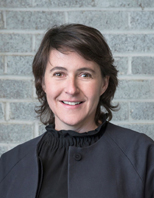Mark Rivett posted April 6, 2021

The Luke Project 52 Clinic was founded to promote the health and well-being of the local population by providing accessible, high quality medical care for expectant mothers and infant under 12 months of age and to also provide a mobile asset to local congregations to help them reconnect with and begin to serve the communities they are in.
Luke Project 52 Mother and Baby Clinic Access to prenatal and newborn care are critical components to improve birth outcomes and reduce infant deaths. Despite Medicaid expansion, many families in Michigan lack health insurance and access to care. Such families often face overwhelming barriers to care including limited or no transportation, poverty, childcare, competing demands, and work schedules. Since 2016, the Luke Clinic in Detroit has provided twice-monthly free care for prenatal and postpartum mothers and their infants through one year of life. In 2020 the Luke Clinic piloted the Mobile Antenatal Testing Unit (MATU), providing community/home-based care to families with high-risk pregnancies and social barriers to care. When the COVID-19 pandemic hit the MATU became a bridge to care for many families for whom it is unsafe to attend clinic appointments or who need hands-on testing in combination with virtual medical care. This project supports the evaluation of the MATU project to provide the basis for future improvements and quality care. Katherine Gold, U-M Departments of Family Medicine and Obstetrics & Gynecology
Category: All News and Events, Detroit, Engagement 2021Comments Off on The Luke Project 52: Valuing the costs and benefits of free mobile care for pregnant mothers and infants
Mark Rivett posted March 19, 2021
Read more here
Additional information here
The John S. and James L. Knight Foundation has announced support for U-M Taubman College students and faculty to work in partnership with the Oakland Avenue Urban Farm to advance Detroit’s historic North End neighborhood. The cooperative effort combines private support with university and community expertise to transform a vacant residence into a design resource library and community hub.
Through the $405,000 grant, faculty will design and adaptively reuse an existing building that will exist as part of the Oakland Avenue Urban Farm in the North End. In partnership with Oakland Avenue Urban Farm, Taubman College will transform a vacant residence into a community-centered design library and meeting space — one that’s run entirely with community support and input. Funds will also provide ongoing support for programming and staffing.
Faculty will collaborate on design, planning, and development projects with Detroit-based architecture and urban design studio Akoaki — led by Anya Sirota, Taubman College’s associate dean for academic initiatives and associate professor of architecture. The project builds on an ongoing effort, five years in the works, to realize a civic commons. The goal is to help the Oakland Avenue farm reimagine and realize six acres of the North End as a vibrant landscape with cultural infrastructure that benefits residents and mission-driven organizations alike.

“Our hope is that this project offers a valuable resource to the North End and continues to build on all of the positive things happening in the community,” said Sirota, co-principal of Akoaki. “This facility’s place as a piece of permanent infrastructure will provide the community and the university the opportunity to learn from one another for years to come and help realize the broader vision of a civic commons in the area.”
Read more here
Additional information here
Category: Community News and Events, DetroitComments Off on Taubman faculty to support new Oakland Avenue Urban Farm project through Knight Foundation grant
Mark Rivett posted March 8, 2021
Read Full Article on the Record
The University of Michigan’s decades-long commitment to engagement in its founding city of Detroit has grown stronger in recent years.
Increased interest in research and partnership opportunities by faculty, staff, students and alumni from U-M’s three campuses has led to a surge of collaborations with the community, according to Office of the Provost. And that sparked the desire for a more cohesive approach to the university’s engagement.
The approach is guided by U-M’s principles for engagement, as described in a 2017 report from a task force examining U-M’s engagement in Detroit. They are:
- Emphasize recognition for the expertise and knowledge within the community.
- Respect for individuals, communities and their resources.
- Equitable partnership focused on reciprocal relationships, transparency and accountability.

Susan Collins: Provost and Executive Vice President for Academic Affairs, University of Michigan
“Both our new and long-standing partnerships across disciplines, sectors and geographic locations exemplify the breadth and depth of our continued work together,” said Provost Susan Collins.
Read Full Article on the Record
Category: All News and Events, Community News and Events, DetroitComments Off on Mutual Benefit Guides U-M’s Work With Detroit Partners




